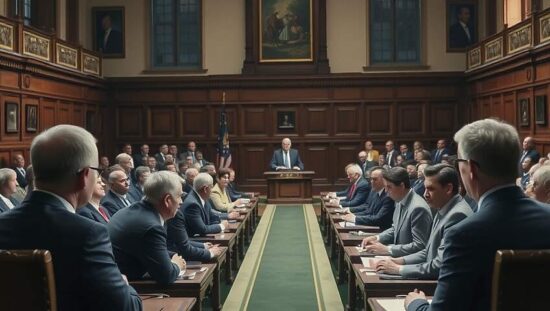A cross-party effort is gaining momentum within the German Bundestag, focusing on initiating a formal process to examine the potential ban of the Alternative for Germany (AfD) party. Several lawmakers, representing diverse political factions, are collaborating to gather evidence and assess the viability of a constitutional challenge under Article 21 of the Basic Law – the provision that allows for the examination of parties’ adherence to Germany’s democratic order.
SPD parliamentarian Carmen Wegge, a vocal proponent of the measure, emphasized the importance of a meticulous and legally sound evidentiary basis before any formal application is submitted. While a timeline remains undefined, she stressed the urgency stemming from the need to protect Germany’s fundamental constitutional principles.
Irene Mihalic, Parliamentary Manager for the Green Party faction, revealed that a proposal outlining a pathway for preparing a possible AfD ban review was presented to other parliamentary groups in early September. Despite the cautious stance adopted by the conservative CDU/CSU, the Greens remain hopeful of forging a unified approach across democratic forces.
Beyond concerns about the AfD’s challenge to the core tenets of the Basic Law through its political program, Mihalic articulated a significant security concern: the party’s alleged alignment with autocratic regimes like China and Russia. She accused the AfD of potentially acting as a conduit for influence from these nations, characterizing it as a “Trojan horse for Putin” and a “considerable security risk” within the German parliament. This accusation suggests a broadening of the concerns beyond purely ideological grounds, injecting elements of national security into the debate.
Stefan Seidler, a parliamentarian from the South-East German Party (SSW), placed the onus on the CDU/CSU for progress. He asserted that a shift towards collaboration from the conservatives is crucial for securing enough parliamentary support for a ban application. He underscored the urgency, warning that delaying the process until closer to potential electoral cycles could significantly impede its chances due to the distractions of campaigning and the potential for politically motivated suppression of information – referencing past instances where security reports were reportedly withheld.
Article 21 of the Basic Law dictates that parties whose aims, or the actions of their supporters, undermine the liberal democratic order or jeopardize the existence of the Federal Republic of Germany are deemed unconstitutional. The Federal Constitutional Court holds the authority to determine the constitutionality of any political party. The emerging bipartisan movement signals a heightened political tension and a potentially significant shift in Germany’s response to the increasingly visible extremist elements within the AfD.





